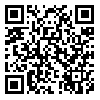1. Zhang W, He T, Zhou N, Duan L, Chi P, Lin X. Children’s oppositional defiant disorder symptoms and neural synchrony in mother-child interactions: an fNIRS study. Neuroimage. 2024;297:120736. [
DOI]
2. Chrysosferidis JR, Burns GL, Becker SP, Beauchaine TP, Servera M. Oppositional defiant disorder in the DSM–5: does the limited prosocial emotions specifier portend a more severe clinical presentation? Res Child Adolesc Psychopathol. 2023;51(7):1037–50. [
DOI]
3. Wahyuni ES, Mahanani FK. Oppositional defiant disorder and learning behavior in elementary school students. Nusantara Journal of Behavioral and Social Science. 2022;1(1):29–38. [
DOI]
4. Musthofa W. The psychological dynamics of child with oppositional defiant disorder (ODD). Nusantara Journal of Behavioral and Social Science. 2022;1(1):1–6. [
DOI]
5. Hawes DJ, Gardner F, Dadds MR, Frick PJ, Kimonis ER, Burke JD, et al. Oppositional defiant disorder. Nat Rev Dis Primers. 2023;9(1):31. [
DOI]
6. Booker JA. Oppositional defiant disorder. In: Handbook of clinical child psychology: integrating theory and research into practice. Cham, Switzerland: Springer Nature Switzerland AG; 2023. pp: 857–77. [
DOI]
7. Mayes SD, Pardej SK, Waschbusch DA. Oppositional defiant disorder in autism and ADHD. J Autism Dev Disord. 2024;2024:1–4. [
DOI]
8. Ishrat DS, Saidan R, Bibi H. Cognitive distortions in adolescents presenting with externalizing behavioural problems. Jahan–e–Tahqeeq. 2023;6(3):503–15.
9. Li X, Zhou M, Zhang X. Rational and irrational beliefs in understanding academic procrastination. J Genet Psychol. 2022;183(1):23–39. [
DOI]
10. Ellis A, DiGiuseppe R, Dryden W. The practice of rational emotive behavior therapy. 2nd ed. New York: Springer Publishing; 2007.
11. Rosas–Fuentes PD, Valdés–García KP, Monroy–Velasco IR, Pérez–Pedraza B de los Á, Sánchez–Loyo LM. Depression, suicide ideation, and irrational beliefs: Explanatory models in psychology students. Salud Mental. 2023;46(2):61–7. [
DOI]
12. Vassou C, Chrysohoou C, Skoumas J, Georgousopoulou EN, Yannakoulia M, Pitsavos C, et al. Irrational beliefs, depression and anxiety, in relation to 10–year cardiovascular disease risk: the ATTICA Epidemiological Study. Anxiety Stress Coping. 2023;36(2):199–213. [
DOI]
13. Stadler C, Freitag CM, Popma A, Nauta–Jansen L, Konrad K, Unternaehrer E, et al. START NOW: a cognitive behavioral skills training for adolescent girls with conduct or oppositional defiant disorder – a randomized clinical trial. J Child Psychol Psychiatry. 2024;65(3):316–27. [
DOI]
14. Giudice TD, Lindenschmidt T, Hellmich M, Hautmann C, Döpfner M, Görtz–Dorten A. Stability of the effects of a social competence training program for children with oppositional defiant disorder/conduct disorder: a 10-month follow–up. Eur Child Adolesc Psychiatry. 2023;32(9):1599–608. [
DOI]
15. Guo J, Tang X, Marsh HW, Parker P, Basarkod G, Sahdra B, et al. The roles of social–emotional skills in students’ academic and life success: a multi–informant and multicohort perspective. J Pers Soc Psychol. 2023;124(5):1079–110. [
DOI]
16. Bagea I, Ausat AMA, Kurniawan DR, Kraugusteeliana K, Azzaakiyyah HK. Development of effective learning strategies to improve social–emotional skills in early childhood. Journal on Education. 2023;5(4):14378–84. [
DOI]
17. Jolani F, Hashemi Nosratabad T, Taklavi S, Beyrami M. The effectiveness of social–emotional skills training on improving academic resilience and academic excitement in female students. Rooyesh–e–Ravanshenasi Journal. 2022;11(2):95–104. [Persian] [
Article]
18. Pérez–Clark P, Royer DJ, Austin KS, Lane KL. A systematic review of second step social–emotional skills program in middle schools. Remedial and Special Education. 2023;44(5):395–408. [
DOI]
19. Shirjang L, Mehryar AH, Javidi H, Hosseini SE. Effectiveness of social skills training on reducing symptoms of oppositional defiant disorder in children. Psychological Models and Methods. 2019;5(34):175. [Persian] [
Article]
20. Lavasani Z, Abolmaali Alhosseini K, Emamipour S. Comparing the effectiveness of social cognitive skills training and emotional, rational and behavioral training on reducing irrational beliefs of adolescents with a tendency to risky behaviors. Journal of Applied Family Therapy. 2021;2(2):444–59. [Persian] [
Article]
21. Hommersen P, Murray C, Ohan JL, Johnston C. Oppositional defiant disorder rating scale: preliminary evidence of reliability and validity. Journal of Emotional and Behavioral Disorders. 2006;14(2):118–25. [
DOI]
22. Abedi A. Survey the validity and reliability of oppositional defiant disorder rating scale (ODDRS) on primary school students of Isfahan. Isfahan: Isfahan Province Education Research Council; 2009. [Persian]
23. Jones RG. A factored measure of Ellis’s irrational belief system, with personality and maladjustment correlates [Ph.D. dissertation in Psychology]. [US, Texas]: Texas Technological College; 1969. [
Article]
24. Motamedin M, Badri R, Ebadi GH, Zamani N. Standardization of irrational beliefs test (4IBT-A) in Tabriz. Psychological Models and Methods. 2012;2(8):73–87. [Persian] [
Article]
25. Sadri Damirchi A, Esmaili Ghazivaloii F. Effectiveness of social– emotional skills training on cognitive emotion regulation and social skills in children with learning disabilities. Journal of Learning Disabilities. 2016;5(4):59–86. [Persian] [
Article]



 ، فاطمه شهامت ده سرخ*2
، فاطمه شهامت ده سرخ*2 
 ، نرگس رسولی3
، نرگس رسولی3 


